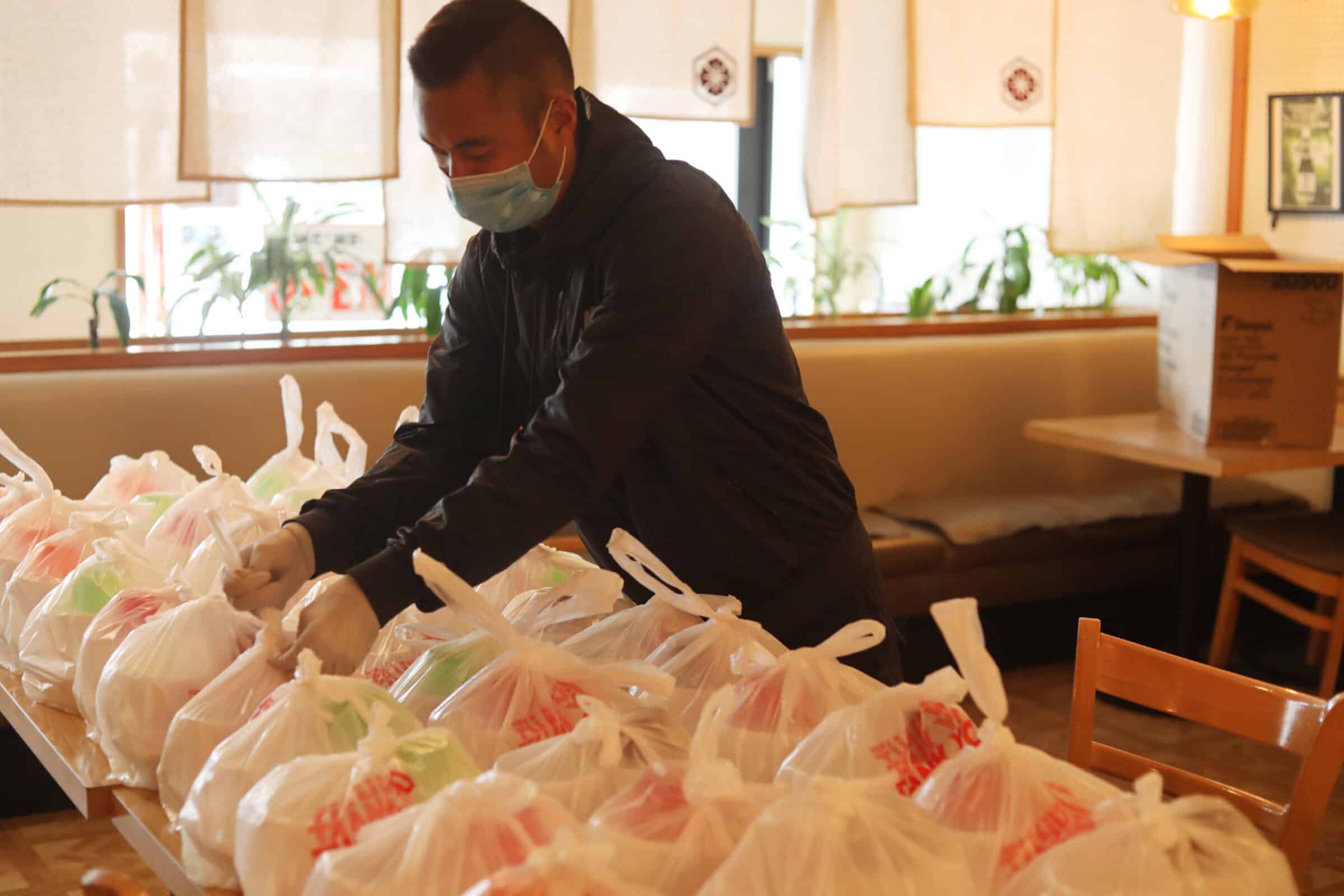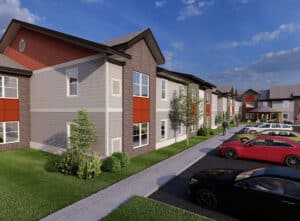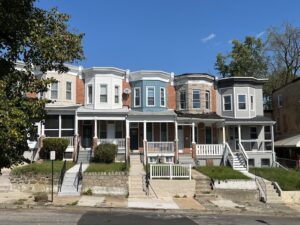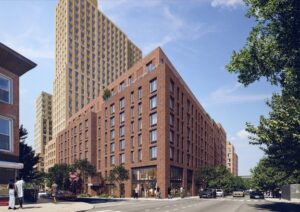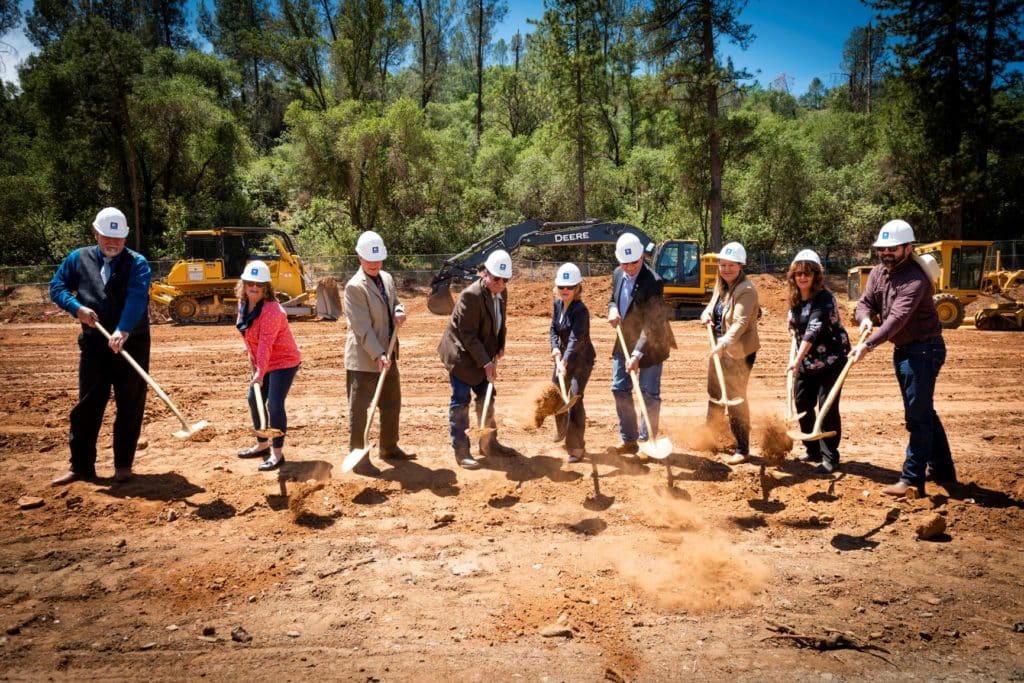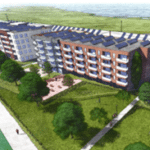
As the world ground to a halt this spring in the face of the Covid-19 crisis, NeighborWorks Organizations quickly adapted.
“It was very jarring,” said Richard Hicks, Little Tokyo Service Center (LTSC)’s Communications Manager. “LTSC has a real history of trying to support the people in our neighborhood and lift people in need. We sprang into action to try and help.”
For LTSC, which this year celebrates 40 years of serving its Los Angeles neighborhood, this immediately included its existing food pantry. LTSC put out a call for dried goods and culturally appropriate products for the people who live in Little Tokyo. The program has since expanded greatly.
They also started the Little Tokyo Eats program to feed senior citizens in their neighborhood. Knowing legacy small businesses in the neighborhood for decades would be hit, LTSC arranged to order meals from a rotating group of them. This has led to stronger partnerships with local small businesses.
“Although it happened during a time of need, we see it as helping the small business community while providing good service to low-income families and seniors – and we definitely see those partnerships continuing,” said Takao Suzuki, LTSC Director of Community Economic Development.
LTSC continues to do welfare phone checks on all the residents of their nearly 1,000 apartments, which has added up to thousands of calls since March.
Their pre-pandemic work has continued as well. This includes a comprehensive array of social welfare and community development services assisting low-income individuals and others in need, along with community revitalization and cultural preservation. They’ve also added a number of programs to adapt to Covid-19 times, which include:
- Delivering more than 7,000 hot meals to seniors in need through its Little Tokyo Eats program
- Providing more than $30,000 to local restaurants through Little Tokyo Eats
- 2,277 non-perishable food pantry bags delivered to low-income families and seniors
- Delivering 1,000+ bags of produce
- LTSC’s two small business counselors have counseled over 300 small businesses
- Feeding 35 children from their Grab and Go food program each week
- Providing 16 different bilingual, socially distanced senior activities at five different locations to help combat isolation through the summer.
“We’ve provided residents whatever resources we could,” to help them cope with the pandemic, Suzuki said.

LTSC has been able to offer everything from cash infusions, food, hygiene products, and more, including offering small grants to residents in need through its Resident Services department. Its Small Business team has helped with PPE loans and other local relief grants.
“Everything really counts now,” Hicks said.
CONTINUING TO PROVIDE
LTSC itself is considered an essential business, so its office wasn’t shut down, and they continued to provide the services they did before COVID hit.
“A lot of us are working remotely, but our social work, resident services, and small business teams still go in and are providing the essential services that are needed,” Suzuki said.
So far, they’ve only lost about 10 percent of rent collection, better than other groups they’ve heard from – for now.
“The longer this goes on, we anticipate people’s ability to pay rent getting worse before it gets better. We’ve started discussions internally and externally with the local governments in terms of what recovery looks like. Our top priority now is still relief,” Hicks said.
On top of COVID, LTSC has also had to address air quality issues from the wildfires, which shut down their outdoor, socially distanced senior activities. Now they are working on different ways to reach seniors.
“I can’t say it’s been easy, but really I think it speaks volumes to nonprofits and other groups that really continue to do this work, even with all the challenges,” Suzuki said.
They have developed a great volunteer network through its programs that has also helped during this time.
“I think the volunteers will stick around after COVID, since they’ve gotten to know the organization and different areas we operate in,” Hicks said.
WORKING TOGETHER
LTSC also reached out to its contacts for support during this time. They are an on-the-ground organization, Suzuki said, and its values of partnership and collaboration come out in its work.
“Oftentimes, even in our community, or the affordable housing or small business communities, other groups see us as helping facilitate, organize, and advocate for those in need. What we provide is a better product when we collaborate with others, whether it’s small businesses or other nonprofits who do the same work in their own communities. It’s collaborations and partnerships that allow us to do this work,” Suzuki said.
That goes for inside LTSC as well.
“LTSC is a big organization, but we’re able to work very closely together,” Hicks said.
They’ve also received support from NeighborWorks Capital, who reached out during COVID to check in.
“That support, even if it’s in the form of an email, phone call, or Zoom, is reassuring in terms of sustainability for our organization,” Suzuki said. “The work that was happening pre-COVID is still happening. Our partnerships with funders such as NeighborWorks Capital adds a bit of normalcy to the everyday work, and continuity while this relief and recovery work is ongoing. That’s reassuring.”
LOOKING AHEAD
This summer, LTSC paid off a $3 million acquisition loan from NeighborWorks Capital 2015 for its Daimaru Hotel. In that project, they converted a 48-room hotel to 24 one-bedroom apartments. They reached 90 percent occupancy by the end of 2019. There are also three commercial shops on the first floor.
After 20 years, its Terasaki Budokan facility finally was completed this summer. It includes a two-court gymnasium, terrace with green space, courtyard, community room, and wedding and event space. While it can’t fully open yet, “It’s a major accomplishment for our organization and on behalf of the community, and definitely a highlight for our 40th anniversary,” Hicks said.
They will celebrate their 40th Anniversary with a Virtual Gala on October 10th. It will premiere on Facebook and Youtube. There will be a virtual silent auction as well. All are welcome!
About Little Tokyo Service Center
Founded in 1979 and incorporated in 1980 by a group of Japanese Americans activists who wanted to form a multipurpose social service center, Little Tokyo Service Center aimed to provide linguistically and culturally sensitive social services to the Little Tokyo community and the broader Japanese American community in Southern California.
In the late 1980s and early 1990s, LTSC began advocating for the housing rights of low-income residents who were being evicted to make way for private development. Out of this struggle, the community development arm of LTSC was formed in 1994. Today, its focus is to promote community control and self-determination in Little Tokyo and with our partners while continuing to provide social services to those in need.

